Abstract
A mathematical model of the processes involved in carbon metabolism is described that predicts the influence of temperature on the growth of plants. The model assumes that the rate of production of dry matter depends both on the temperature and the level of nonstructural carbohydrate. The level of nonstructural carbohydrate is determined by the rates of photosynthesis, growth, and maintenance respiration. The model describes the rate of growth and dark respiration, and the levels of carbohydrate seen in vegetative growth of carnation and tomato. The model suggests that the growth of plants at low temperatures is limited by a shortage of respiratory energy, whereas at high temperatures growth is limited by the shortage of carbohydrate. Thermoperiodism, wherein a warm day and cool night results in faster growth than does constant temperature, is explained by the model as an increase in the level of nonstructural carbohydrate which promotes the rate of growth relative to the rate of maintenance respiration.
Full text
PDF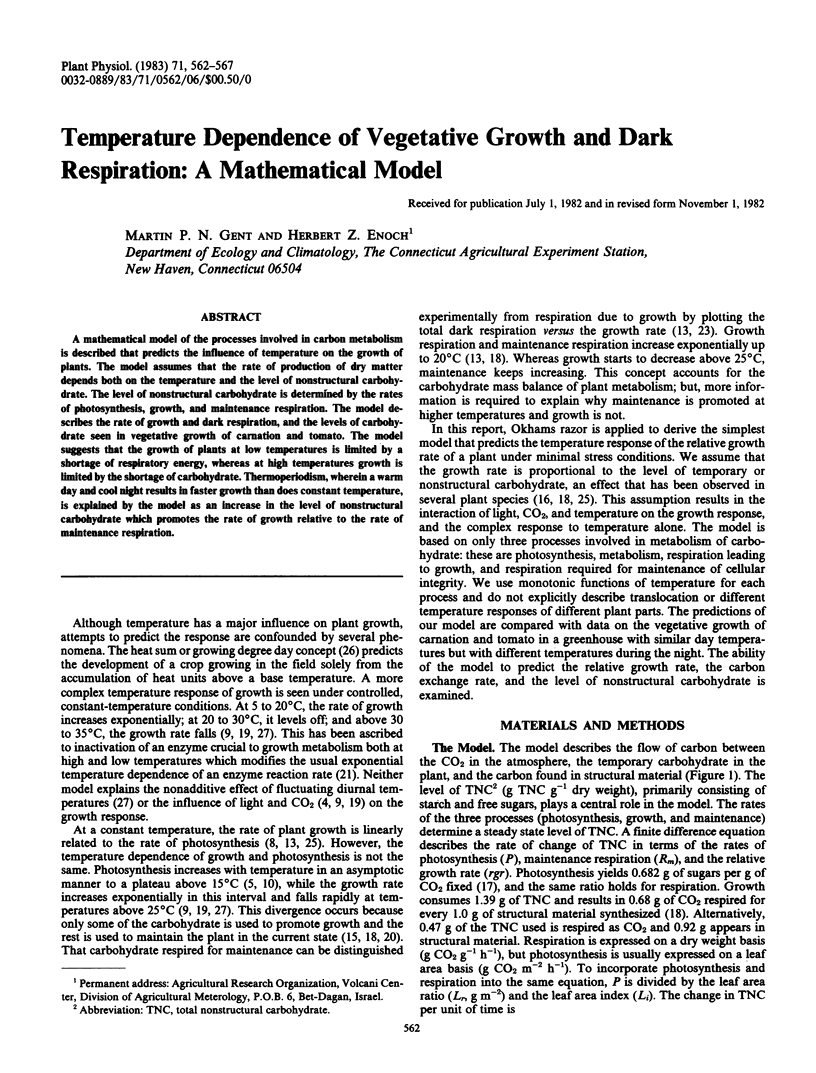
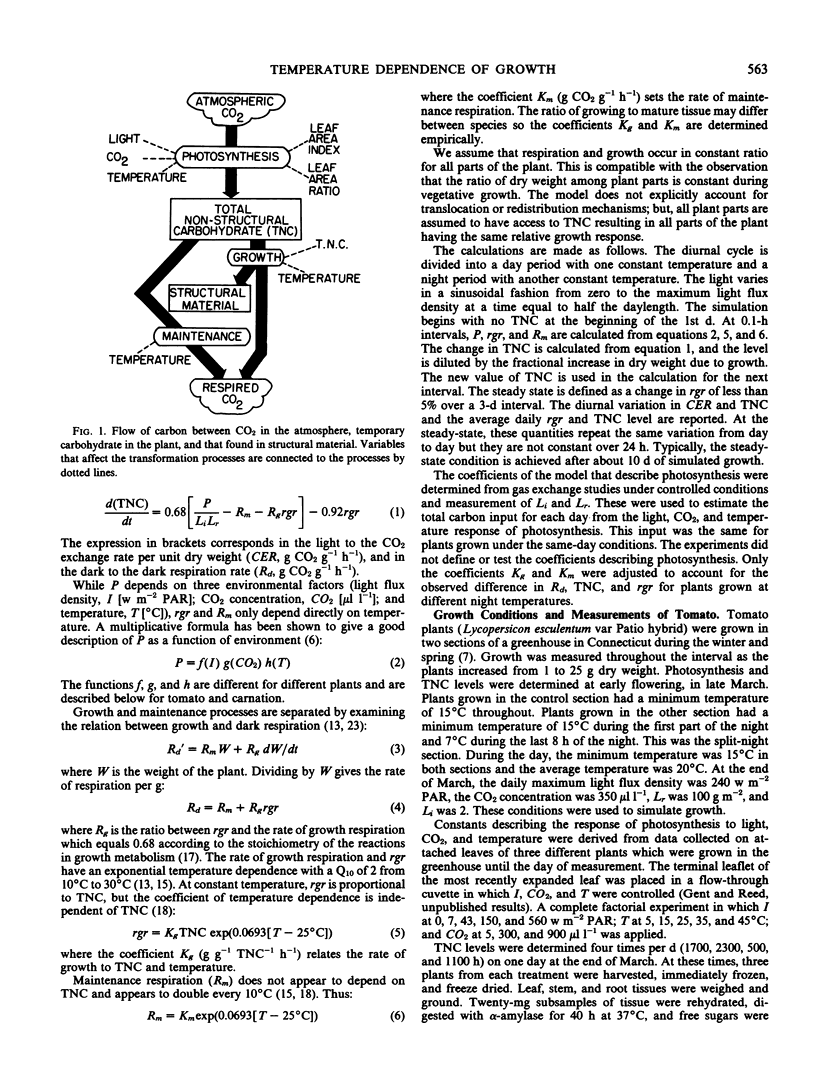
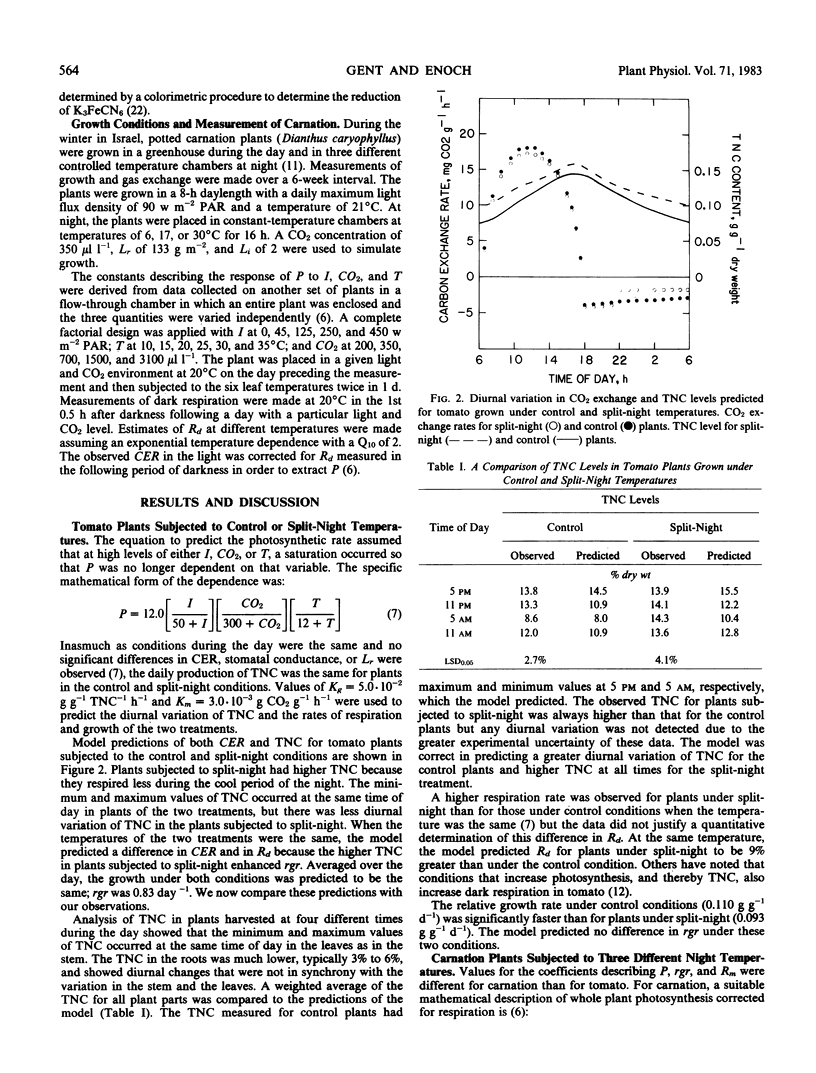
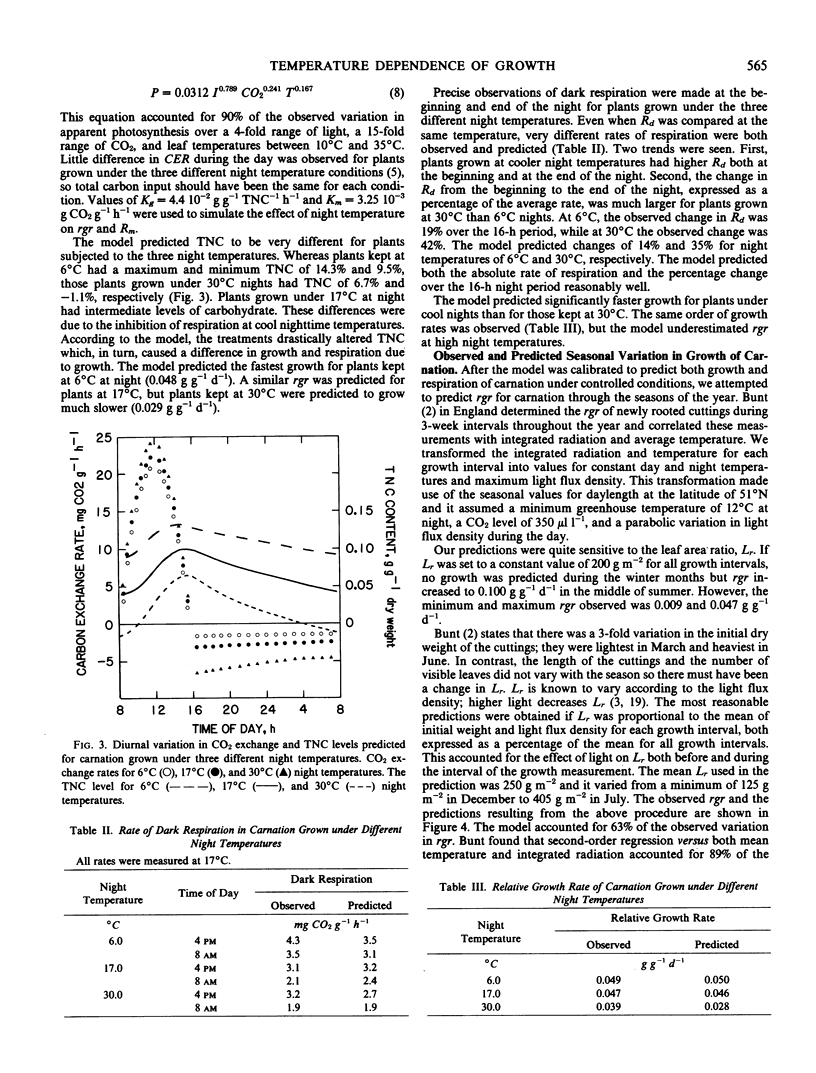
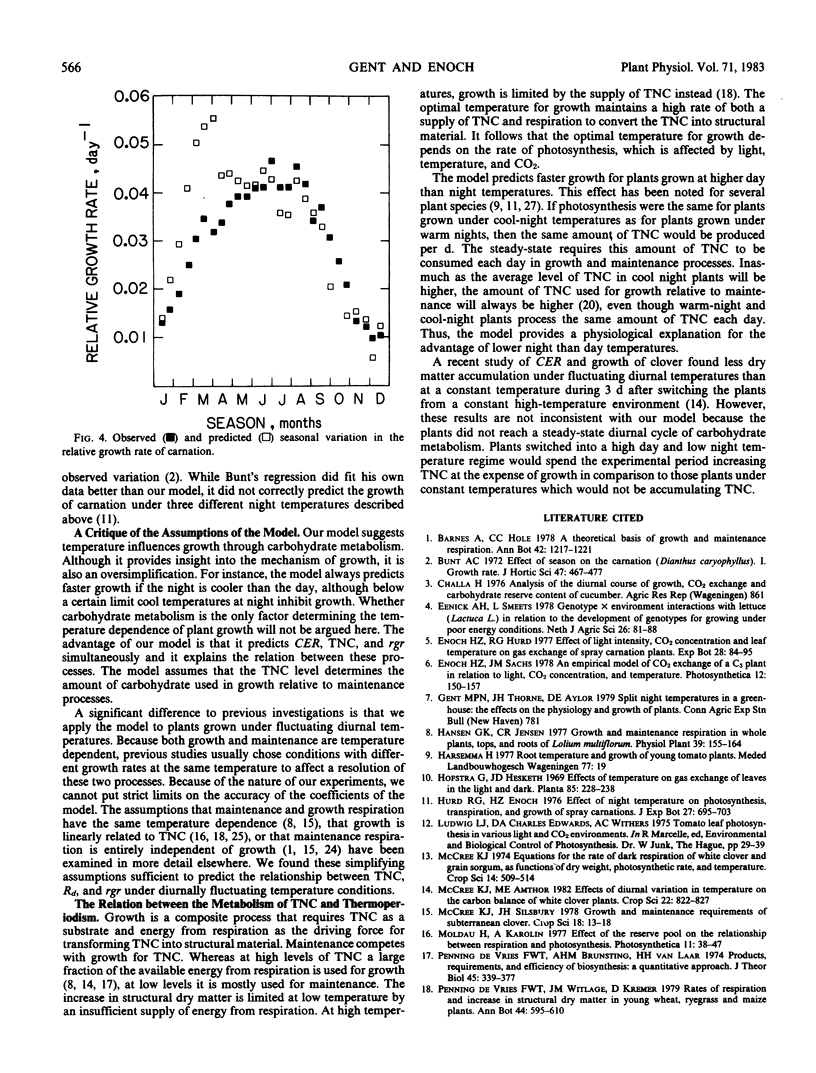
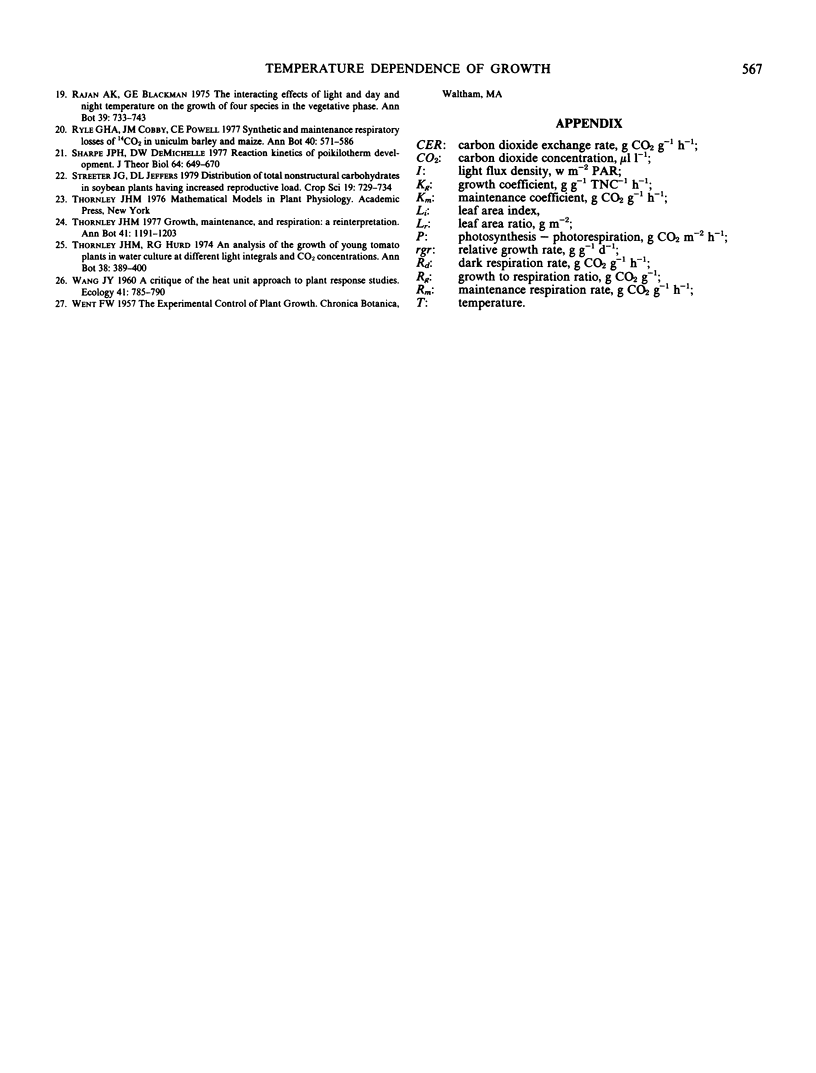
Selected References
These references are in PubMed. This may not be the complete list of references from this article.
- Penning de Vries F. W., Brunsting A. H., van Laar H. H. Products, requirements and efficiency of biosynthesis: a quantitative approach. J Theor Biol. 1974 Jun;45(2):339–377. doi: 10.1016/0022-5193(74)90119-2. [DOI] [PubMed] [Google Scholar]
- Sharpe P. J., DeMichele D. W. Reaction kinetics of poikilotherm development. J Theor Biol. 1977 Feb 21;64(4):649–670. doi: 10.1016/0022-5193(77)90265-x. [DOI] [PubMed] [Google Scholar]


